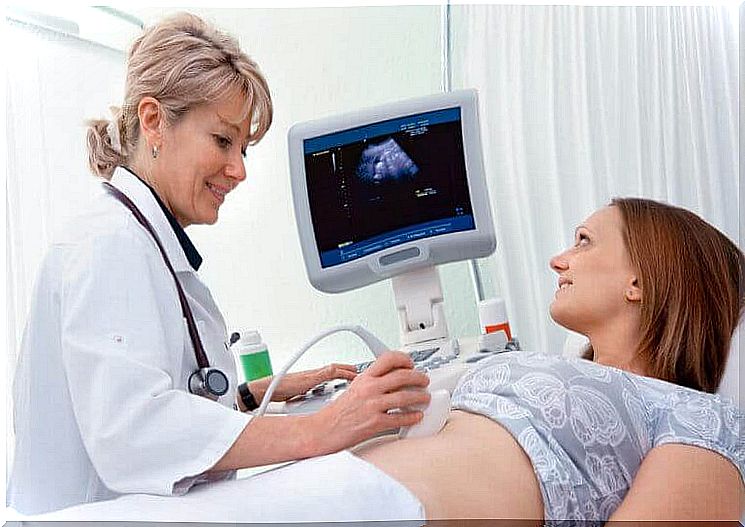When Can You First Hear Your Child’s Heartbeat?

A baby’s heart starts beating about 21 days after pregnancy begins. However, parents will not be able to hear it until at the earliest in the sixth week and then with the help of an ultrasound. In this article, we will discuss the miraculous sound of a child’s heartbeat.
The ultrasound can be done after the sixth week of pregnancy or sometimes during the seventh or eighth week. During this period, the baby’s heart beats at more than 100 beats per minute.
Parents often find this very exciting, and it can also be very emotional to hear their child’s heartbeat for the first time. After the examination, they can often feel that their connection to the child has become stronger.
However, the examination is not only important for emotional reasons: the ultrasound and other modern tests check that the embryo is healthy and can make you and your doctor aware of any complications.
According to maternity care, it is important that pregnant women are regularly examined with ultrasound. This is used to verify that the baby’s cardiovascular system is functioning properly as the fetus grows. It also strengthens the bond between mother and child.
How many beats per minute is normal?
Many people think that the baby’s heartbeat at the first ultrasound sounds like a herd of galloping horses. It can be worrying.
It is also normal for the heartbeat of the embryo to gradually become faster, reaching 170 beats per minute during the second month, with constant fluctuations until birth.

A study from 2010 published in the journal Sports Medicine showed that exercise that the mother performs during the last trimester has an effect on the heart and circulation in both mother and child. This creates a system that protects and regulates both health until birth and also afterwards.
Many women become anxious when their baby’s heart rate drops, but this is common during contractions.
Doctors explain that during a contraction, blood flow to the placenta decreases. Consequently, the baby’s heart rate slows down. The baby’s heart rate will return to normal at the end of the contraction. This can be checked with an ultrasound.
A portable ultrasound monitor to hear your baby’s heartbeat
Nowadays, you can buy small portable ultrasound monitors, or dopplers, and they have become very popular among pregnant women after they, among other things, enable expectant parents to listen to their baby’s heart sounds and movements in the stomach even between examinations offered by maternity care.
Although dopplers have not yet been accepted by healthcare, future parents are using them more and more. However, it is important that you have access to all the facts before doing so.
In healthcare, there are different opinions about them. Some benefits include:
- They often have recesses for headphones.
- Those with speakers allow multiple family members to listen at the same time.
- You can connect them to your smartphone. A downloadable app lets you record your baby’s heartbeat on your phone and see the ultrasound image on your screen.
- Parents and anyone else who wants to can listen to the baby’s heartbeat, whenever and wherever they want.
Using a portable ultrasound monitor
Using the portable ultrasound monitor works in a similar way to the ultrasound examination that you get at the doctor’s surgery. Just like during that examination, you must first apply a gel for it to work properly. Using gel is important. Failure to do so may damage the machine.
One of the disadvantages for many is the difficulty of using the machine properly. At the same time, they warn of any errors in the reading that could lead future parents to worry about their children’s heartbeat.

These portable ultrasonic monitors convert all the internal movements it detects into sound. As a result, the normal flow in the body’s system can be picked up by the machine, read as data and lead to false readings of the speed of your child’s heartbeat.
We recommend that you use dopplers with caution. For people who are a little generally worried about themselves, or those who tend to worry unnecessarily, it is best to leave these tests to the pros. It is important to always go to all recommended doctor visits and checkups.









